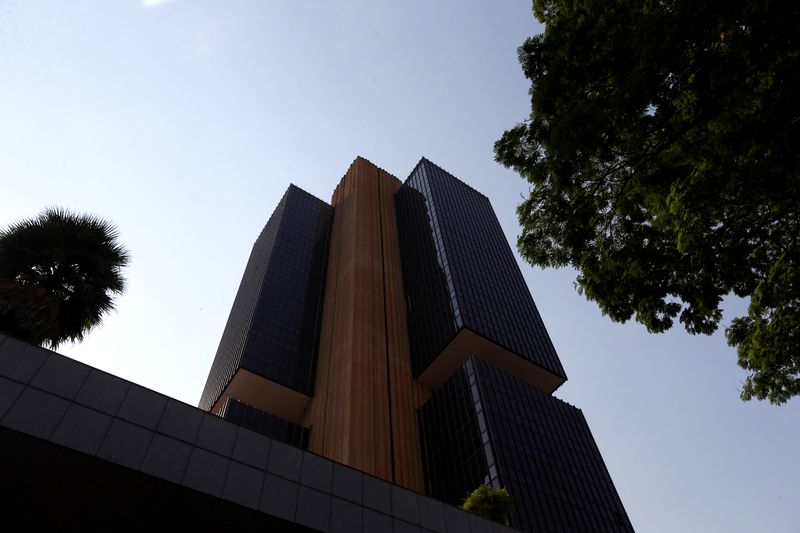By Marcela Ayres
BRASILIA/SAO PAULO (Reuters) -Brazil’s President Luiz Inacio Lula da Silva has picked central bank monetary policy director Gabriel Galipolo to be the institution’s next governor, replacing Roberto Campos Neto whose term ends in December, Finance Minister Fernando Haddad said on Wednesday.
“It is a great honor, a significant responsibility, and I am very pleased,” Galipolo told journalists in Brasilia alongside Haddad.
His naming had been widely expected.
Galipolo’s appointment must be confirmed by the Senate’s economic affairs committee before going to the full Senate for approval for him to take the post in January.
Haddad said the Senate will know when “the best moment” to hold Galipolo’s hearing will be.
The finance minister added that the government will now focus on selecting Galipolo’s replacement as monetary policy director, as well as the upcoming nominations for directors of regulation and institutional relations, which must be made by the end of the year.
The former second-in-command at the finance ministry, Galipolo is a 42-year-old economist who holds a master’s degree in political economy from the Pontifical Catholic University of Sao Paulo.
His close relationship with Lula began in 2021 due in part to his longstanding ties with Luiz Gonzaga Belluzzo – a key Lula adviser and economics professor at Unicamp, a Sao Paulo university known for its unorthodox thinking – with whom Galipolo has co-authored books on economics.
Outside of academia, Galipolo is known for his diverse professional background.
He served as an economic adviser to the Sao Paulo state government under center-right Governor Jose Serra, became familiar with financial markets as CEO of investment bank Banco Fator and served as an adviser on public-private partnerships.
Galipolo’s recent hawkish comments as monetary policy director, in which he stressed that a rate hike is on the table amid an uncomfortable inflation scenario, helped ease asset prices after the Brazilian real slipped against the U.S. dollar.
The central bank’s rate-setting committee is set to hold its next policy meeting on Sept. 17-18. The Selic benchmark interest rate is currently at 10.5%.
Galipolo’s stance contrasts with his position in May, when he sided with a minority group of central-bank directors chosen by Lula in advocating for a larger rate cut than the one ultimately decided by the majority.
The division sparked fears that the central bank would be more tolerant of inflation when Lula holds a majority of seven picks on the nine-member board starting next year.
Galipolo has publicly emphasized that Lula respects the independence of the rate-setting committee. At the same time, he has praised the performance of Campos Neto, saying he is “taking a victory lap” at the end of his term.
Appointed by former far-right President Jair Bolsonaro, Campos Neto has faced persistent criticism from Lula for what the leader considers high interest rates and politicization of the central bank by the monetary authority head.

